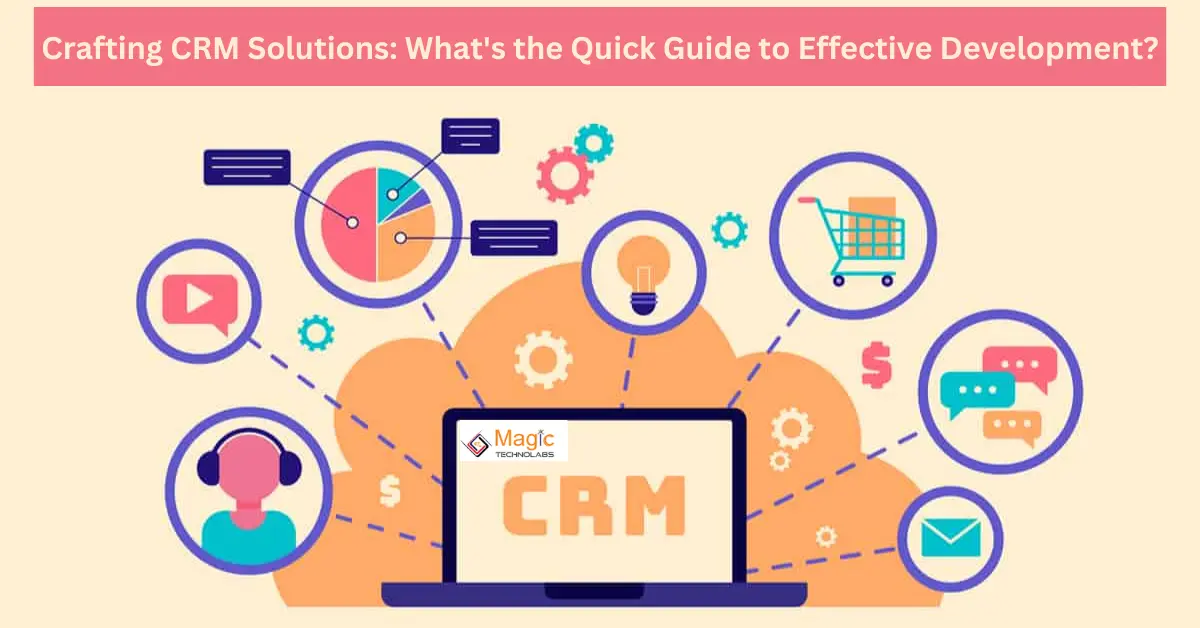In the realm of customer relationship management (CRM), developing effective solutions is paramount for businesses aiming to enhance customer interactions and streamline processes. This quick guide outlines essential steps for crafting successful CRM solutions.
1. Define Clear Objectives
Begin by clearly defining the objectives of your CRM solution. Whether it's improving customer communication, enhancing data management, or streamlining sales processes, a well-defined objective sets the foundation for effective development.
2. Understand User Needs
Comprehensive user understanding is key to crafting a CRM solution that meets the needs of your team. Engage with end-users, gather feedback, and identify pain points to ensure the system aligns with daily workflows and addresses specific challenges.
3. Choose the Right CRM Platform
Selecting the appropriate CRM platform is a critical decision. Consider factors such as scalability, customization options, integration capabilities, and user-friendliness. Popular choices include Salesforce, HubSpot, and Zoho CRM, each catering to different business needs.
4. Customization for Your Business
Tailor the CRM solution to align with your business processes. Customize fields, workflows, and reporting structures to match your unique requirements. A well-customized CRM system enhances user adoption and overall efficiency.
5. Seamless Integration with Existing Systems
Ensure seamless integration with other essential business systems. Whether it's email, marketing automation, or project management tools, integration eliminates data silos and provides a comprehensive view of customer interactions.
6. Prioritize User Training and Support
Invest in user training to ensure your team is well-equipped to utilize the CRM system effectively. Providing ongoing support and resources fosters user confidence, reduces resistance to change, and maximizes the benefits of the CRM solution.
7. Focus on Data Security and Privacy
Protecting sensitive customer data is non-negotiable. Implement robust security measures and adhere to privacy regulations to instill trust among users and customers. A secure CRM solution is foundational for long-term success.
8. Implement a Feedback Loop
Establish a feedback loop for continuous improvement. Regularly gather input from users, analyze system performance, and identify areas for enhancement. An iterative development approach ensures your CRM solution evolves with changing business needs.
Conclusion
Crafting effective CRM solutions requires a strategic and user-centric approach. By defining objectives, understanding user needs, choosing the right platform, customization, seamless integration, user training, prioritizing security, and implementing a feedback loop, businesses can develop CRM solutions that not only meet current requirements but also pave the way for future growth.
















